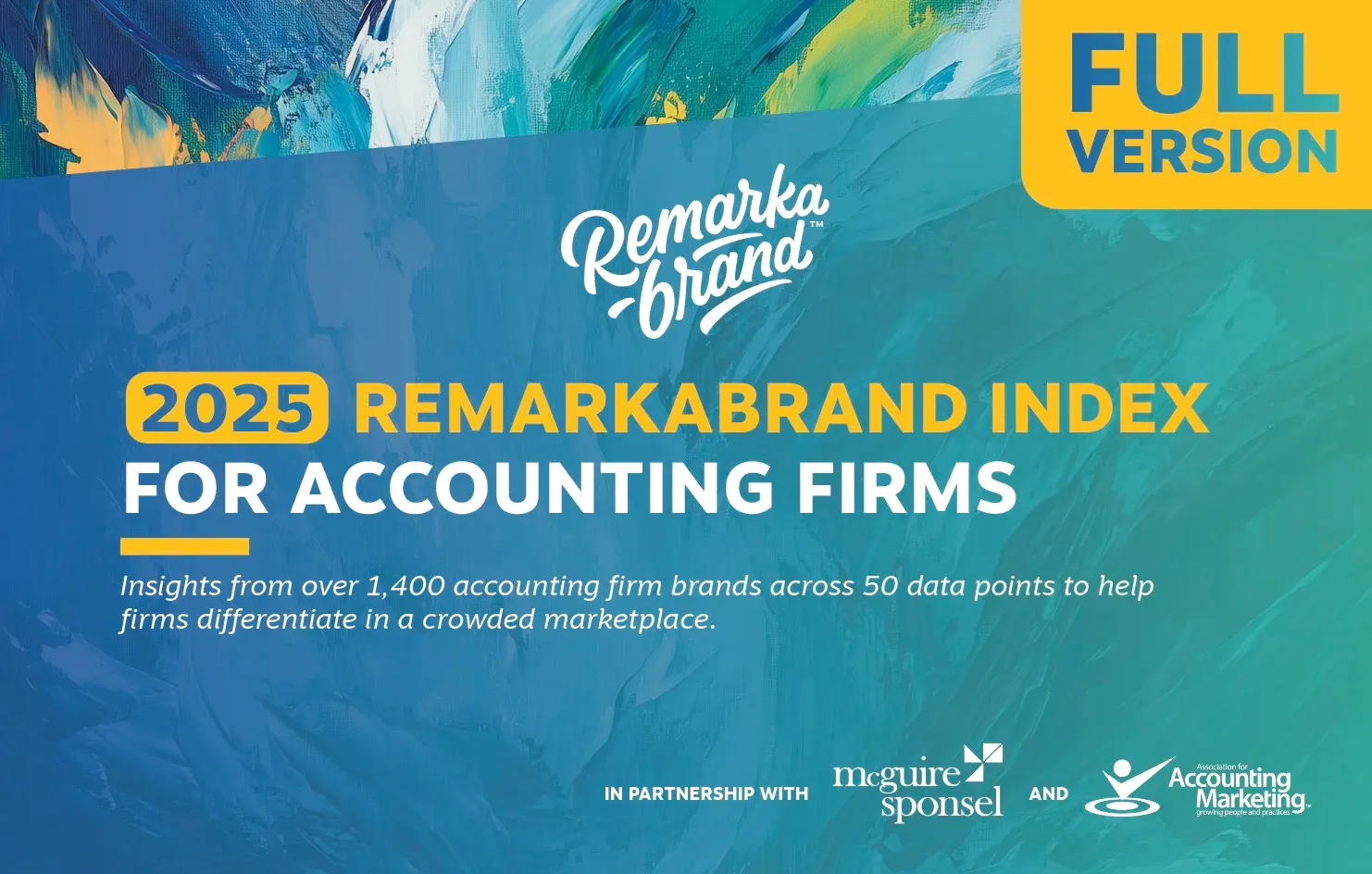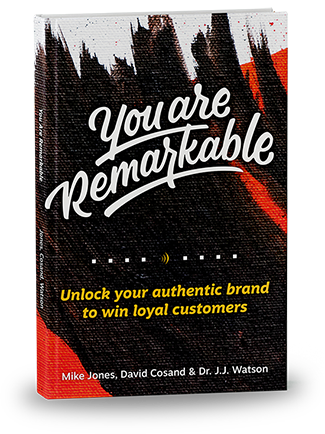When it comes to developing a brand, many companies will settle for a logo and name that seems unique. They believe that if their logo and name are clever enough, they will stand out in the marketplace. And they might. But it’s a mistake to brand on anything other than your substance. Your authentic brand isn’t just a market positioning tool, but a love letter to your ideal client. After all, if you attract tons of clients who are not at all within your target market it’ll be an uphill battle both ways to make it work. But if your brand fully expresses who you are — if your brand is authentic — you’ll be more likely to attract the kind of clientele you love to serve. Here’s how to recognize and begin the path to authenticity.
This idea of a company who views their brand as nothing more than a logo and a name is essentially a non-branding approach to business. The leadership has no interest in knowing or communicating what the business is, skeptical that a brand could or should be anything more than an empty shell. So what do their brands become? Empty shells, pulled into success only so far as their unguided sales team can drag them. At the end of the day, this non-branding approach to branding is still a decision about branding. It’s a decision to be a lackluster-at-best brand. And to us, that really sucks.
Here at Resound, we believe that within every brand is remarkability — the potential to stand out and impact the world — and we truly believe that the world needs you as you are. We are on a mission to help brands uncover what makes them remarkable so that companies can maximize their service to the world.
This article is inspired by Resound’s upcoming book about remarkable branding, coming out soon. Sign up for email alerts to find out when the book will be available here.
Non-branding, where does it come from?
If the results of this non-branding approach to business are as rough as we claim they are, why would this approach continue to thrive in the world? After all, people don’t start companies to fail. Non-branding is something that happens in the absence of thoughtful branding. The reality is that unless you’ve intentionally worked through developing your brand beyond your logo and name, you’re liable to fall into this non-branding approach.
Is branding worth it?
Some people say that branding is a waste of precious resources, especially early on in a business or when sales are down. The general wisdom out there is that sales and marketing are where your dollars should be going, and at first glance that makes sense. If you aren’t making sales or securing leads, you aren’t bringing in resources, and you can’t stay afloat. But this idea is too narrow. It creates a false dichotomy between branding and sales.
- Branding is the tool your sales team uses when they make promises and engage potential clients.
- Branding is the tool your customer support uses to serve your current clients.
- And branding is the tool that helps develop processes which honor the practices and heart which your company was founded upon.
In other words, branding is what holds your company together in a cohesive way, to ensure you’re able to deliver what your selling in a compelling and remarkable way.
Otherwise, as your company grows and the brand is undeveloped, your culture is undefined, your employees are unguided, and what was once very clear to you becomes muddled in your company. Clients are not treated the way you would treat them, sales calls aren’t handled the way you would handle them, processes aren’t developed the way you would develop them, and suddenly the only thing that does unify your brand is that catchy name and clever logo. Unfortunately, a catchy name and clever logo aren’t enough to attract new clients and keep existing ones, especially when words get around that your brand doesn’t seem to be delivering. Only a brand built by people with commitment, conviction, and vision can do that.
How do you know if this is you?
There are some simple ways to know whether or not you’ve drifted into this non-branding approach to your company. Ask yourself the following questions:
- When was the last time our leadership talked about what makes our brand unique?
- When was the last time our leadership talked about our brand’s personality or values?
- Would everyone from the top of the organization down to the contractors you work with be able to accurately tell you what your brand is about? Why not ask them?
- When was the last time you invested dollars in strengthening or developing your brand internally? Not just the external things like your logo and name.
If these questions are difficult to answer or you answer them in less than favorable ways, it’s possible you’ve drifted into non-branding.
What to do if you’ve drifted
Drifting happens to all of us. From Microsoft right on down to the corner market in your neighborhood. We can all sometimes forget who we are, or turn our attention somewhere else. When we do, we need a mindset change. Where the mind goes the body follows. Not thinking about branding, or thinking poorly of branding is how you got here, so the way out will be in taking time and investing resources in developing your brand.
As you begin to develop your brand you’ll realize that establishing your brand not only brings clarity to your team internally, but it provides clarity to your client base externally. Who you are becomes apparent to the world. Once the world sees you as you are, then they can make decisions about whether or not you’re the kind of company they want to work with. This cuts down the time spent on cold leads, naturally increases the number of warm leads, and increases company and client relations as you begin to only attract the kind of clients you want to serve. Happy clients talk and word spreads without having to spend a dollar on marketing.
The process of developing your brand can be daunting, which is why we’ve crafted worksheets, developed a workshop, created webinars, crafted monthly newsletters, and are writing a new book. We are on a mission to help brands discover their authentic selves. We truly believe that the world needs you as you are and that every company built by people is remarkable.
The world is waiting for you.
The real you.



